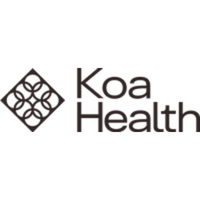Three ways to align rewards and benefits with company purpose

Could poor alignment between your company purpose and its actions be sending a mixed message?
Ideally, an organisation’s mission is at the centre of its behaviour, influencing every aspect of its business decisions and every action it takes. That includes its rewards offering, which besides providing genuine benefits to employees, should also reflect a company’s ethos and values. Because when your values aren’t reflected in your benefits offering, you risk hiring employees who aren’t suited to the company – and fail to attract those who are.
By aligning your rewards and benefits with your company purpose, you help create a strong company identity and strengthen the links between your mission and your actions. That adds value to the business and makes your firm more attractive to investors and potential employees.
Walking the talk and the ESG Framework
The alignment between your company’s mission and ethos and its actions has become increasingly valued both by potential talent and investors. For example, if your organisation publicly says it’s invested in sustainable practices or supporting employees’ mental health, you’ll need to be willing to back up your words with evidence of policy and initiatives implemented.
Investors increasingly consider these non-financial factors in their analysis prior to investing, to identify material risks and growth opportunities down the road. One way they do this is with the environmental, social and governance (ESG) framework, which looks at a company’s environmental initiatives, its social relationships with employees, customers and local communities, and governance, or how it is led and managed.
While strong ESG practices can benefit companies financially by making them more attractive to investors, the benefits go beyond that. Placing these practices at the heart of your company’s values is a commitment to do good in the world. And when it comes to things like sustainability and mental health, it’s something which will make your company more effective at carrying out its mission.
How to align benefits with company values
1. Review and (if necessary) redefine your mission
Your company values are not set in stone. They should be regularly updated and redefined as your organisation grows and evolves. This is important because they should always reflect where your company stands today – not where it was when you started, or even a few years ago.
In the last few years we have seen an increased awareness of poor mental health among workers, exacerbated by the COVID-19 pandemic. In light of this, you can see why a company might decide to modify their values (and their benefits offering) to place an increased focus on wellbeing and mental health support.
2. Regularly evaluate your benefits and rewards
But it’s not enough to just update your company’s mission. The rewards and benefits you offer should also come under review on a regular basis to make sure they reflect and align with your values. For many companies this means doing the work to make benefits unbiased, inclusive and accessible to all.
For example, if your company has committed to workplace wellbeing, it’s worth thinking about how to better incorporate mental health support into your rewards and benefits offering. This could include, among other things, monthly or quarterly wellbeing days, flexible work, increased personal leave and access to digital mental health support.
3. Identify actions that align with company values and purpose
Company values matter. But the actions you take as a business matter more. If your values and actions don’t align, you’re sending a mixed message to your employees, clients and potential investors. For example, a company that prides itself on its approach to sustainability would need to be committed to company-wide actions to protect the environment, whether it’s a big overarching goal of becoming carbon neutral, or a rewards scheme to recognise the smaller sustainable actions of individual staff, such as cycling to work, or going without printing.
At Koa Health, mental health is the defining purpose of our company. We’re committed to making balanced mental wellbeing more accessible to all, and that includes all of our team, too. This is why we’ve recently increased our investment in mental health to the rate of approximately €1,000 per employee.
As strategy director and head of ethics, I firmly believe that taking action to ensure benefits offerings and company purpose are in alignment is the right thing for employees and the organisations that employ them. But it is also an important way to show investors – and the world – that your values are sincere and deeply rooted in the company’s very identity. Because while as organisations we may try to say who we are with values and ethics statements, our actions effectively reveal the truth of who we really are, and what we truly care about.
The author is Oliver Smith, strategy director and head of ethics at Koa Health.
This article is provided by Koa Health.
In partnership with Koa Health
At Koa Health, we believe digital mental health solutions are the answer to mental health issues.







